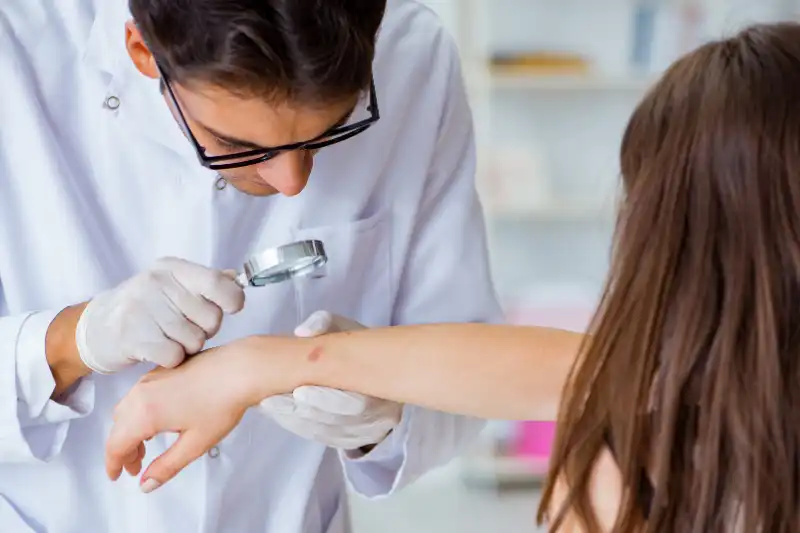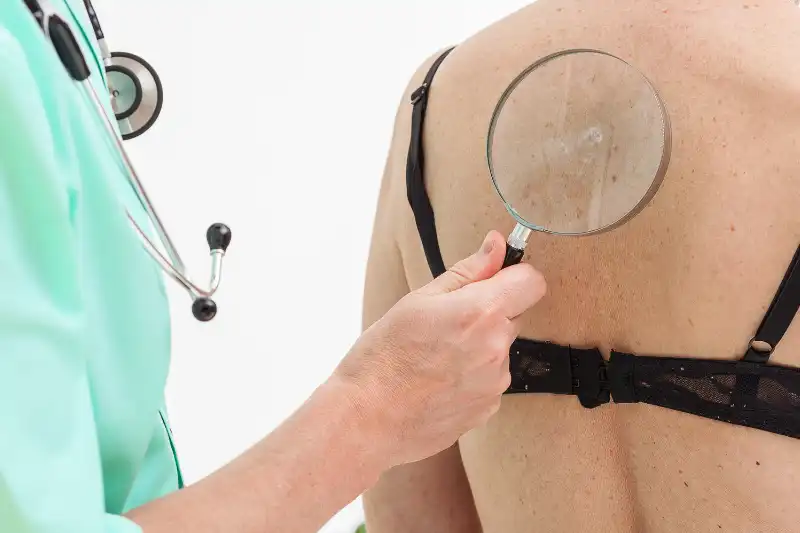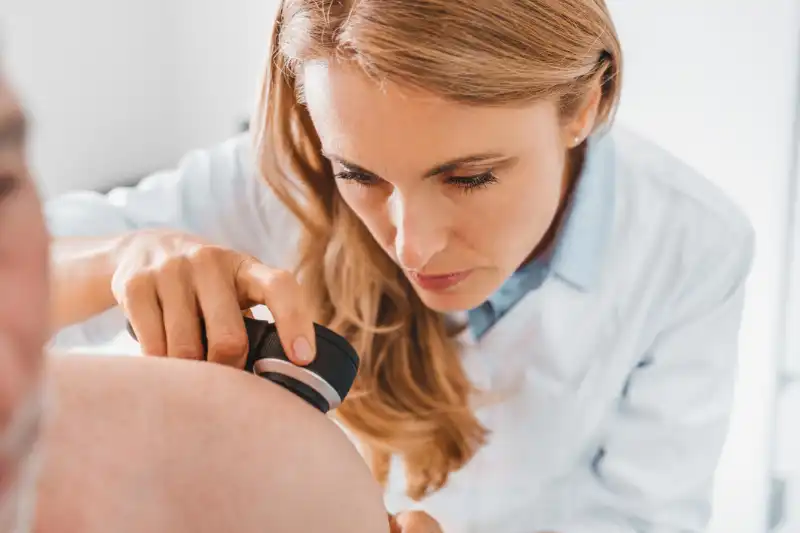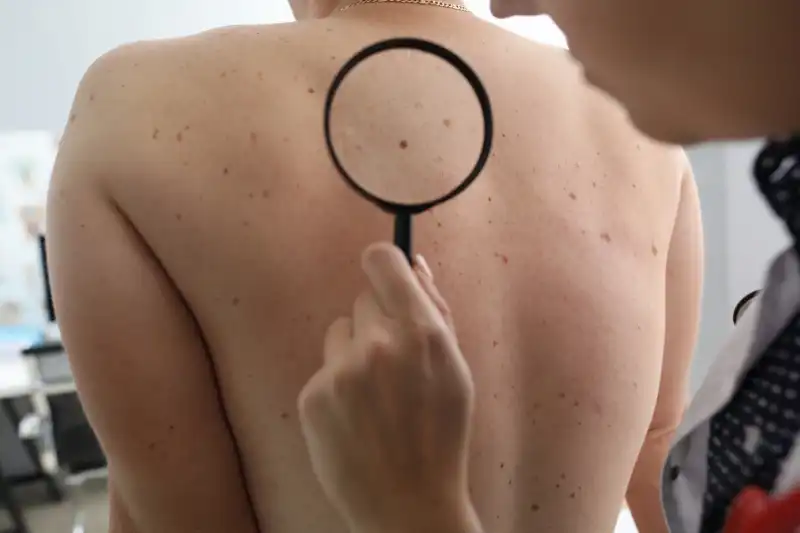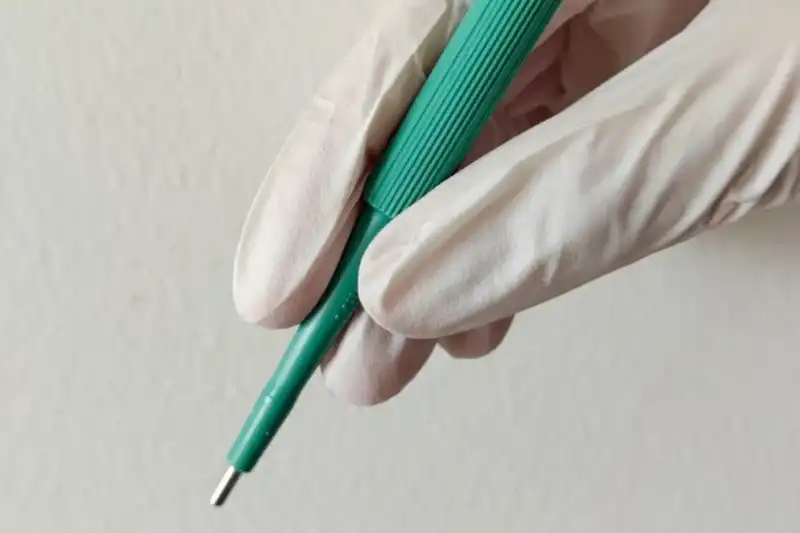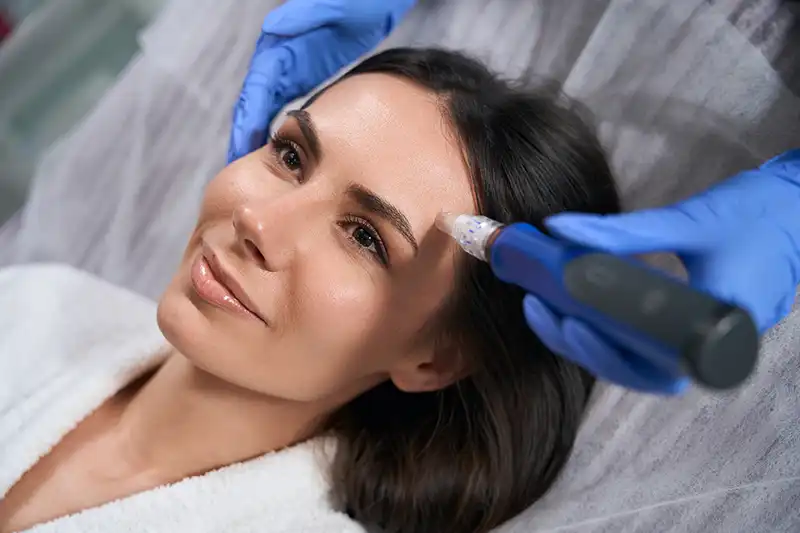What is a Skin Exam and How Does It Work?
Skin exams are a great way to find and diagnose skin issues like skin cancer, dermatitis, and psoriasis early. This is especially crucial if skin cancer runs in your family or if you’re consistently exposed to sunlight without protection. Regular skin exams help identify problems early, making treatments more effective and maintaining your skin’s health.
Every skin exam starts with a conversation. You can share any concerns you have about your skin, talk about your medical history, and mention any changes or problems you’ve noticed. We listen and make assessments to determine which skin exam or screening is right for you.
Common skin exams performed at Premier Partners in Dermatology in Pittsburgh, PA include:
- General Skin Exam: A comprehensive assessment of the entire skin surface. It involves a visual inspection of the skin to check for any abnormalities, such as moles, lesions, rashes, or changes in skin texture.
- Skin Cancer Screening: Specialized exams focused on identifying signs of skin cancer, including melanoma, basal cell carcinoma, and squamous cell carcinoma.
- Mole Mapping: This exam leverages a technique that uses photography to create a detailed record of a person’s moles and other skin features.
- Skin Biopsy: A small sample of tissue is removed from the affected area and sent to a laboratory for analysis. This helps determine whether a growth is cancerous or benign.
- Dermoscopy: A non-invasive method that involves using a dermatoscope, a handheld magnification tool with a light source, to examine moles and skin lesions in detail.
- Total Body Photography: A comprehensive imaging technique that captures photographs of the entire body’s skin surface.
- Skin Allergy Testing: Also known as patch testing or prick testing, is performed to identify allergic reactions to specific substances or allergens.
- Wood’s Lamp Examination: A specialized ultraviolet (UV) light source used to examine the skin’s pigmentation and identify certain skin conditions, such as fungal infections or pigment disorders.
- Confocal Microscopy: An advanced imaging technique that allows Dr. Joseph J. Stuckert II, MD to examine skin tissue at a cellular level.
- Teledermatology: This exam involves the use of digital images and telecommunications technology to remotely diagnose and monitor skin conditions.
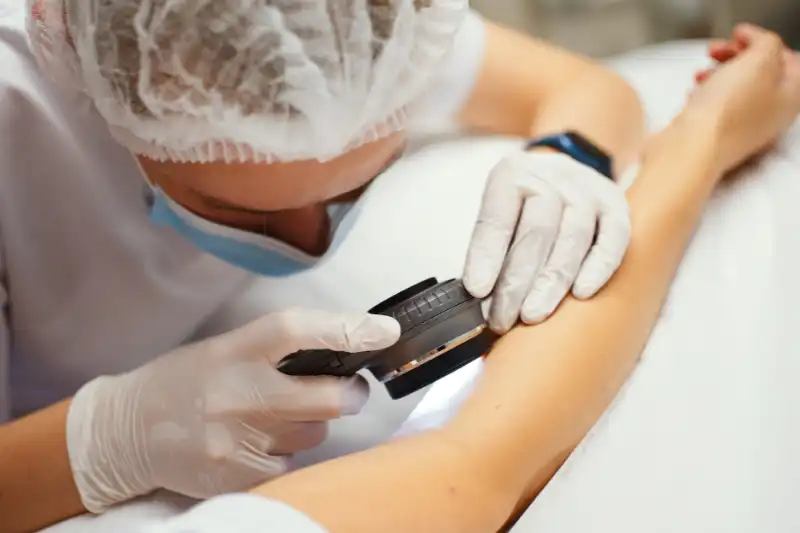
Signs You Need a Skin Exam
Often, our skin reveals more than we realize. It might show signs of distress or transformations that require expert attention. Recognizing these signs early can lead to timely interventions and significantly improved outcomes for your skin health.
Common signs you need a skin exam include:
- Changes in Moles: If you notice any changes in the size, shape, color, or texture of an existing mole, or if a new mole appears, it’s important to have it examined.
- Skin Lesions or Sores: Any persistent or unusual skin lesion, sore, bump, or wound that doesn’t heal within a reasonable period should be evaluated.
- Skin Discoloration: If you observe unexplained changes in the color of your skin, such as darkening or reddening, it’s a reason to consult Dr. Stuckert.
- Itching or Pain: Persistent itching, pain, tenderness, or discomfort in a specific area of the skin should not be ignored.
- Rashes: If you develop a rash that doesn’t improve with over-the-counter treatments or if you’re unsure about the cause of the rash, Dr. Stuckert can help diagnose and treat it properly.
- Bleeding or Oozing: Any mole, lesion, or growth that bleeds, oozes, or produces discharge should be examined promptly, as these can be concerning signs.
- Family History: If you have a family history of skin cancer or other skin conditions, you may be at a higher risk.
- Excessive Sun Exposure: If you have a history of significant sun exposure, especially without adequate sun protection, you may be at increased risk of skin damage and skin cancer.
- Weakened Immune System: People with weakened immune systems, such as those with HIV/AIDS or undergoing organ transplantation, are at a higher risk for certain skin conditions.
Early detection of a skin condition is key to treatment. If you think you might need a skin exam, don’t hesitate to schedule an appointment with us today!

